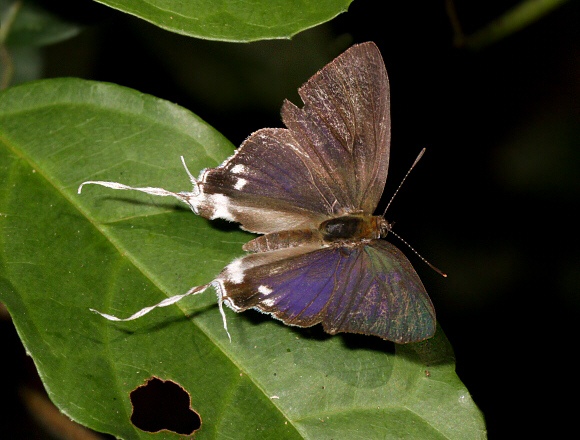
Introduction
There are 45 members of the genus Hypolycaena, of which 22 are found in the Afrotropical region, 1 in the Holarctic region ( China ), and 18 in the Oriental region. In the Australian region a further 4 species are found, but they differ in certain ways from other Hypolycaena species, so a new genus may need to be erected to contain them.
The African Hypolycaena species are popularly known as Fairy Hairstreaks. The various species can be distinguished from one another by examining the curvature and alignment of the orange median stripe on the underside, the configuration of the white markings on the upperside hindwings, and the hue of the metallic scales in the basal area of the upperside.
Hypolycaena nigra is found from Sierra Leone to Congo, Uganda and n.w. Tanzania.
Habitats
This is a rainforest species, which occurs at altitudes between about 100-500m.
Lifecycle
The lifecycle is unknown.
Adult behaviour
Both sexes nectar at various wild flowers, usually holding their wings erect when feeding. They periodically oscillate their hindwings, which causes the little tails to wiggle, and this, together with the “false eye” marking at the edge of the wings diverts the attention of predators away from the butterfly’s head and body. Birds generally try to predict which direction a butterfly will take, so they aim their attack at a point just ahead of the butterfly. Hypolycaena hatita and other Theclinae turn this to their advantage, fooling the bird into aiming behind the butterfly, which then flies forward and often escapes unharmed.
When not feeding, both sexes sit on low herbage, and bask with their wings fully outspread. Males often settle at the edges of puddles to imbibe moisture.
